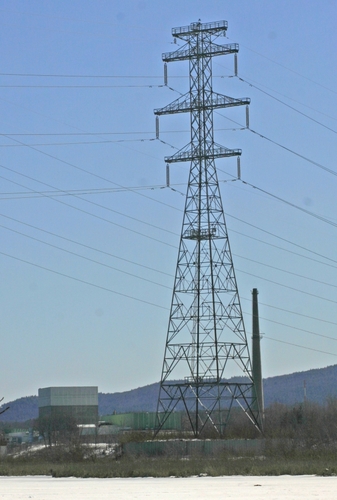For better or for worse, depending on where you stand on the polarizing issue of nuclear power in general or Vermont Yankee in particular, a page turned on Dec. 29, when the nuclear power station cut itself off from the power grid.
Despite the months-long buildup to this inevitable moment, the immediate effects to our larger community are largely invisible. The sky did not fall on Dec. 30. We did not suffer brownouts. We did not see tumbleweeds blowing down Governor Hunt Road in Vernon.
The long-term consequences? That could easily be a different story.
A study released on Dec. 24, “Economic Impacts of Vermont Yankee Closure,” prepared by the Donahue Institute at the University of Massachusetts at Amherst, projects the reverberations of the effect of the loss of those jobs on the region.
It is not good news.
By 2021, the economic models predict a net loss of almost 1,200 jobs and an annual loss of $488 million to the overall regional economy of Windham County, Cheshire County in New Hampshire, and Franklin County in Massachusetts.
Will those dire predictions come true? That will depend to a huge extent on our collective behavior.
We do not have a good collective track record with civil, constructive, and pragmatic public discourse over issues of mutual concern. Memories flash back to antinuclear protesters dumping garbage in a public meeting, or to Entergy using charity as a cudgel.
Over and over, year after year, we have seen Vermont Yankee's employees and supporters summarily dismiss any criticism of this plant, nuclear power, or this country or state's policy as ignorant. We have witnessed callous and insensitive gloating from the antinuclear side, especially in the days following the 2013 announcement about the shutdown. When hundreds of people lose their jobs, nobody should be happy, even if we think it is a sacrifice for the greater good or the safety of our region.
It is easier to see in hindsight the worst consequences of this complete inability of people to work with, listen to, or validate the humanity of those with whom they disagree: Ten years ago, when 2012 loomed as a possibility for the non-renewal of VY's federal license to operate, we could have been engaged in contingency planning. Instead, we had two groups of people in social vacuums, preaching to their respective choirs, each group by and large talking at the other side that had long stopped listening.
* * *
So how do we reconcile after more than 40 years of bitter and persistent conflict? How do we move out of those deep grooves that are worn into the road that brought us to this point? Is any of that even possible?
It had better damn well be possible.
People will need to step up and work on this economic issue.
We need to work on it together. And we need to do so now.
That is easier said than done. We can't just snap our fingers and create a kumbaya moment. For too many people on both sides, past skirmishes in this long battle will resonate into the future.
And, of course, the slow transition of VY from active plant to mothballed wasteland - literally - will serve as the backdrop for plenty of fights about this plant and its final disposition. Many of us will continue to disagree, sometimes sharply, about the myriad decisions that will take place between now and the long-distant point when every last vestige of the plant (other than the casks of radioactive waste) will be removed from the banks of the Connecticut River.
We do not have the luxury of looking backwards.
And we can take that first step: opening our hearts and our minds, looking outside our usual circles and comfort zones. We can listen to people with whom we disagree. We can engage with them. We can learn from them. We can get to know them.
We do not have to compromise our individual informed opinions and feelings about nuclear power - on either side - to be able to work on solutions to bolster our regional economy and to create a shared vision of a regional economic public good.
Nobody is claiming that this healing and reconciliation process will be easy. But we owe it to ourselves and to our future generations to try.
